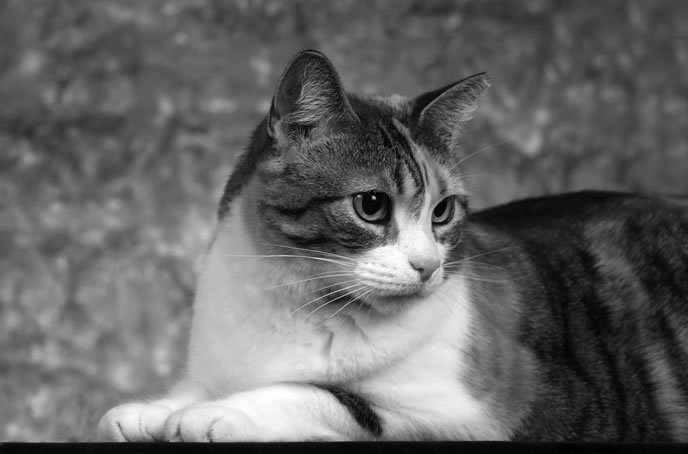Q. I have a 12-year-old calico kitty who eats a regular diet of commercial fish cat food and some assorted cat food pates. She also loves whole milk, and we give it to her after her meals on a daily basis. A friend of mine told me that I should not give her milk, as this can be harmful. Is this true?

A. I understand your kitty’s craving for milk, as I love it, too. I also realize that popular media and historic literature have made people believe that milk constitutes a good diet for cats. While it is true that most cats love the stuff, there is little benefit and some potential harm in feeding cats cow’s milk, despite what your kitty may tell you. Allow me to explain.
While it is ideal for kittens to drink their mother’s milk, particularly when they are very young, to acquire the appropriate nutrition and immune protection to survive and grow, drinking cow’s milk may cause a number of health issues for the average adult cat. These problems fall into two general categories: gastrointestinal intolerance and obesity.
Standard cow’s milk contains a fair amount of lactose, a sugar that gives milk its sweetness and that must be broken down by lactase, a digestive enzyme produced in the small intestine of most mammals. The breakdown of lactose by this enzyme normally provides energy for growing offspring, and in the case of cow’s milk, this would normally mean a calf being nursed by its mother. Cow’s milk is great if you are a calf, as a calf (and many other young animals) has sufficient lactase to break down the relatively large amount of lactose present in milk.
The problem is that as animals grow, they commonly experience a decrease in the amount of lactase that their intestines produce, so many adult animals (including cats and humans) have insufficient amounts of lactase necessary to break down the lactose in cow’s milk.
Failure of the breakdown of lactose in milk can lead to undigested lactose drawing fluid into the GI tract and production of gas secondary to bacteria in the gut fermenting undigested lactose. These processes can lead to the symptoms of lactose intolerance, including diarrhea, gas production, nausea, and vomiting. A kitty with diarrhea, bloating and nausea is an unhappy kitty, so this problem in and of itself is enough to recommend avoiding the regular feeding of cow’s milk to cats.
The other major problem with feeding cats cow’s milk is that it is relatively calorie dense. Whole milk contains approximately 150 calories per cup, and obesity is a major problem in feline health, with many owners not even recognizing that their cats are obese. Since the average cat should eat approximately 240 calories per day, and it is recommended that cats receive no more than 20 percent of their daily calories from unbalanced nutritional sources (which cow’s milk is considered to be), it would be far better to have your cat eat a well balanced diet and to treat her perhaps very occasionally with a small treat of milk. That is, if she really enjoys it and can tolerate it without developing signs of lactose intolerance. Of course, making sure she gets enough exercise and is receiving the correct amount of balanced food is also very important in avoiding obesity.
I understand that you want to make your girl happy by giving her treats. Perhaps you might consider giving her small amounts of either commercially available cat treats (not too many!) or bite-sized pieces of cooked meat or fish as treats. I’ll bet she will love these, and they are more in line with what she has evolved to eat. Of course, it is important that you work with her veterinarian to make sure that your kitty is receiving a well balanced and complete diet and that you are proactive about her health care.
I hope this is helpful, and although your kitty may not like not having as much milk, she will be better off in the long run!
—Best regards, Elizabeth
Elizabeth is thankful for the assistance of Bruce G. Kornreich, DVM, Ph.D., ACVIM, Associate Director of the Cornell Feline Health Center, in providing the answer on this page.

